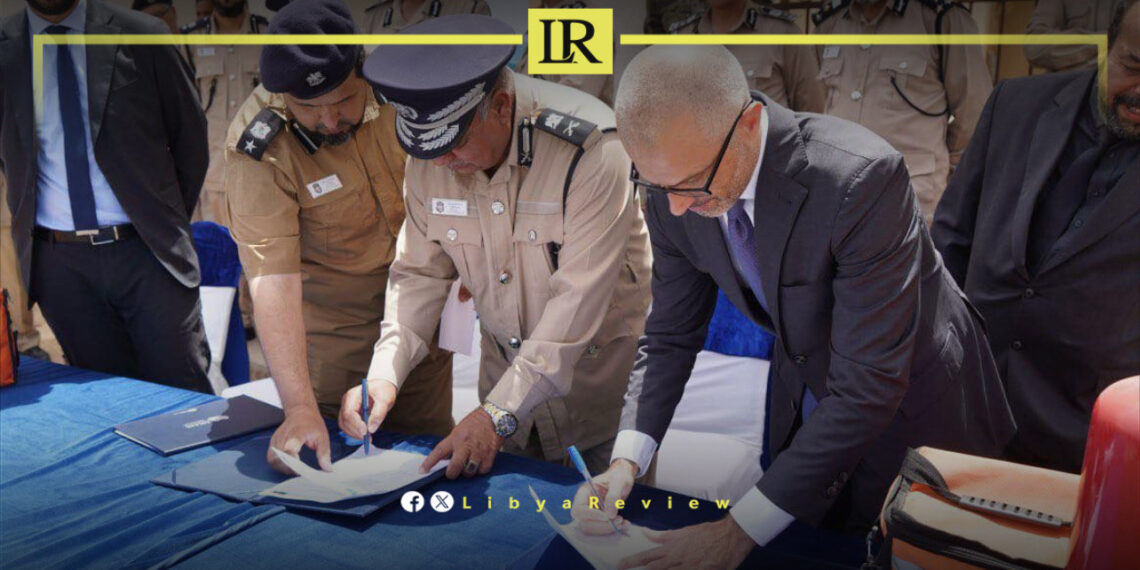On Thursday, the Ministry of Interior of the Government of National Unity (GNU) received a state-of-the-art surveillance camera system for the Sabratha archaeological site from the European Union Mission in Libya.
The handover ceremony was attended by the Mayor of Sabratha, the local Archaeological Supervisor, representatives from the Gubabis company, and experts overseeing the training of members of the Tourist Police and Antiquities Protection Unit.
This initiative is part of the ongoing cooperation between the Ministry of Interior and the EU Mission, aimed at enhancing the skills and efficiency of the Tourist Police and Antiquities Protection Unit members. This step marks a significant effort to improve the security and preservation of Libya’s valuable historical sites.
Libya has been in chaos since a NATO-backed uprising toppled longtime leader Muammar Gaddafi in 2011. The county has for years been split between rival administrations.
Libya’s economy, heavily reliant on oil, has suffered due to the ongoing conflict. The instability has led to fluctuations in oil production and prices, impacting the global oil market and Libya’s economy.
The conflict has led to a significant humanitarian crisis in Libya, with thousands of people killed, and many more displaced. Migrants and refugees using Libya as a transit point to Europe have also faced dire conditions.
The planned elections for December 2021 were delayed due to disagreements over election laws and the eligibility of certain candidates. This delay has raised concerns about the feasibility of a peaceful political transition.
Despite the ceasefire, security remains a significant concern with sporadic fighting and the presence of mercenaries and foreign fighters. The unification of the military and the removal of foreign forces are crucial challenges.


